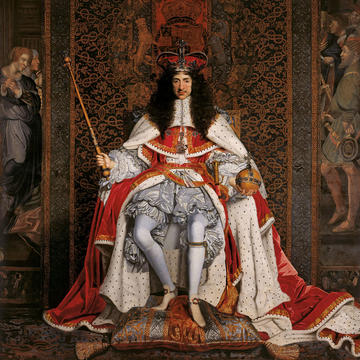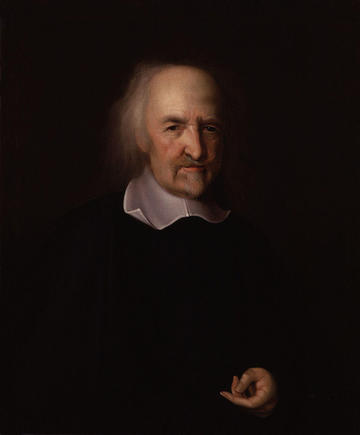Odes to the Early Royal Society
The establishment of the Royal Society for Improving Natural Knowledge in the 1660s was accompanied by poetic fanfare. Leading up to the Society’s foundation and in the years that followed, poetry in praise of experimental philosophy serenaded men of the new academy for continuing Francis Bacon’s ‘enlightenment’ project. Odes and poetic epistles which prefaced natural philosophical treatises were by nature aggrandising and hyperbolic. However, poets were careful to note the limitations of natural knowledge and the need for divine revelation, in the vein of the Anglican divine and Pyrrhonist William Chillingworth (1602-1644) and Joseph Glanvill (1636-1680) after him. The concept of ‘limited certainty’, present in even the most fulsome odes, helped to frame the early Royal society’s scientific enterprise as consonant with Anglican discourse regarding the limits of reason, as expressed in Robert Boyle’s Discourse of Things Above Reason (1681): ‘we can never directly answer those [Objections] which require for their solution a perfect comprehension of what is infinite’.
In his 1667 ode ‘To the Royal Society’, Abraham Cowley – poet and erstwhile secretary to Queen Henrietta Maria during the Civil War – compared the new Royal Society to the small army of Gideon, the Israelite judge and prophet who ushered in an age of peace after conquering the Midianites:
Methinks, like Gideon’s little Band,
God with Design has pickt out you,
To do those noble Wonders by a Few (117-119)
Cowley likens ‘these noble Wonders’, the scientific advancements of a select few, with global exploration and conquest. Prefixed to Thomas Sprat’s History of the Royal Society (1667), this ode was one of the many poetic epistles which English Royalists composed in honour of the Royal Society’s early fellows. Cowley’s biblical language was not unusual; the public aim of the poetry was to emphasise that the new science was part of an ultimately Christian enlightenment. One crucial means by which Cowley brought together Anglican orthodoxy and the new science was by mitigating his grandiose praise of scientific discovery with reference to the inaccessibility of divine knowledge and the limitations of the human senses. The poem asserts ‘῾tis God only who can find/ All nature in his mind’ (67-68), echoing Cowley’s earlier ode ‘To Mr Hobs’ (1656): ‘῾Tis only God can know/ Whether the fair idea thou dost show/ Agree entirely with his own or no’ (7-9).

Abraham Cowley (1618-1667)
In the Ode to the Royal Society, Cowley christens Sir Francis Bacon as an English prophet of intellectual liberation:
Bacon! like Moses, led us forth at last;
The barren wilderness he pass’d;
Did on the very border stand
Of the bless’d Promised Land,
And from the mountain’s top of his exalted wit,
Saw it himself, and shew’d us it. (93-98)
Cowley here casts the Royal Society as Bacon’s living legacy and presents the age of scholasticism as the ‘barren wilderness’ from which England must be liberated with the continued advancement of experimental philosophy. Natural philosophy becomes the gateway to the Promised Land. Like Sprat’s History, which was functionally an apologia rather than an historical account of the Society’s foundation, Cowley’s ode heralds Bacon as the most important English precursor to the Royal Society. In a similar fashion, John Dryden, who served as poet laureate and King Charles II’s historiographer-royal, figured Bacon as prophetic in his epistle ‘To Dr Charleton’ which prefaced Walter Charleton’s treatise on Stonehenge, Chorea Gigantum (1663): ‘The world to Bacon does not only owe/ Its present knowledge, but its future too’ (21-24). In this epistle, Dryden declares that, before Bacon, England dwelt in the darkness of Aristotle’s shadow:
The longest tyranny that ever sway’d
Was that wherein our ancestors betray’d
Their free-born reason to the Stagirite,
And made his torch their universal light. (1-4)
Dryden here echoes Cowley’s ode ‘To Mr Hobs’ which calls Aristotle ‘the Stagirite’ who ‘long did retain […] the universal intellectual reign’ (22-23). The attack was conventional, and reflected a central complaint of Royal Society fellow Joseph Glanvill’s influential 1661 treatise The Vanity of Dogmatizing. Glanvill lamented the long tradition of adherence to the teachings of the ‘Stagirite’ which were not borne of rigorous testing against ‘Nature’ but of a ‘Pedantic’ tradition: ‘I can see no ground, why his Reason should be textuary to ours; or that God, or Nature, ever intended [Aristotle] an Universal Headship’.

Charles II (r. 1660-1685)
That Cowley and Dryden both depicted Bacon as the initiator of England’s ‘exodus’ from the scholastic wilderness shows how central a ‘Biblified’ Bacon was to the public image of the Royal Society – both poets were made fellows. It’s notable that the first English thinker to give rise to the seventeenth-century Anglican discourse of what Richard Popkin has called ‘mitigated scepticism’, with a heavy Biblical focus, was not Bacon but the less famous Chillingworth. The latter’s ‘mitigated scepticism’ was modified by Glanvill and thereby considerably shaped Royal Society thought. But the odes’ prophetic Bacon is hardly surprising: it was typical of odes to mythologise English philosophy and endow it with a grand narrative arc befitting a Biblical epic.
This kind of bombast was characteristic of Cowley’s Pindaric style, which became a popular tool for Stuart apologetics after the Restoration. In his trend-setting 1656 Pindarique Odes, he liberated the vernacular Pindaric from Pindar’s famously difficult ‘strophe-antistrophe-epode’ Greek form and instead portioned unequal lines into stanzas of unequal length. One of these Pindarics was the aforementioned ode ‘To Mr Hobs’. Thomas Hobbes was excluded from Royal Society membership, and he was a name much invoked in polemic for his heterodox materialism, which was importantly distinct from the mechanistic philosophy which he shared with the likes of Boyle. But Cowley, with whom Hobbes was exiled at the French court of Henrietta Maria during the Civil War, praised Hobbes as a crucial figure in English science nonetheless: ‘Thou great Columbus of the Golden Lands of new philosophies’ (56). In the ode, Cowley performatively doubts the capacity for poetic language to weave a suitable ‘Wardrobe’ with which ‘To cloath the mighty Limbs of thy Gigantique Sence’ (66, 69). Perhaps even more hyperbolic is Cowley’s ode ‘Upon Dr Harvey’ (1663) in memory of William Harvey, member of the Royal College of Physicians. He casts Harvey as a plunderer of ‘Coy Nature’ who struggles in vain against his penetrating ‘wit’ and scrutiny. Before Harvey dissects the secrets contained in Nature’s heart (a reference to Harvey’s ground-breaking description of the circulatory system), Nature doubts that man could even parse the secrets of his own anatomy:
The heart of Man, what Art can e’re reveal
A wall impervious between
Divides the very Parts within,
And doth the Heart of man ev’n from its self conceal (26-30)
but Harvey pounces upon Nature ‘Till all her mighty Mysteries she descry’d’ (35). As in the Ode to the Royal Society, Cowley privileges the authority of experimental philosophy over the artistic representation of Nature, which he equates with superstitious pre‑scientific natural philosophy.

Thomas Hobbes (1588-1679)
For a full generation following Cowley, odes about scientific discovery trended in England. Some were penned by University poets, such as the Peterhouse poet Thomas Heyrick and Thomas Shipman of St John’s College, Cambridge, perhaps as a display of defiance against the view that the Universities occupied the fossilized sphere of theology away from scientific learning (an idea enshrined in Cowley’s 1661 treatise A Proposition for the Advancement of the Experimental Philosophy). Heyrick’s Baconian Pindaric ode ‘A Submarine Voyage’ (published posthumously in 1691) and odes composed to his friend Joshua Barnes, who was elected to the Royal Society in 1710, showed that university ‘schoolmen’ could also stake an interest in the dynamic world of natural philosophy.
Pindaric odes, which were a notable tool of Stuart apologetics, unified English philosophical scepticism with Royalist panegyric grandeur. Cowley’s transformation of the Pindaric ode from a classical to an unrecognisable vernacular poetic mode enjoined the transformation of natural philosophy in England under the aegis of the Royal Society. His odes presented this latter transformation as England’s transformation into the New Atlantis. An important caveat frequently peppered the odes’ grandiose language: that whilst the new scientific enquiry was daring, it could not unlock Nature’s mysteries, nor could it solve the problem of apprehension by limited human faculties.
Jane Cooper is an Examination Fellow of All Souls College and a DPhil candidate researching sublime poetics and the reception of natural philosophy in England (1650-1740).


